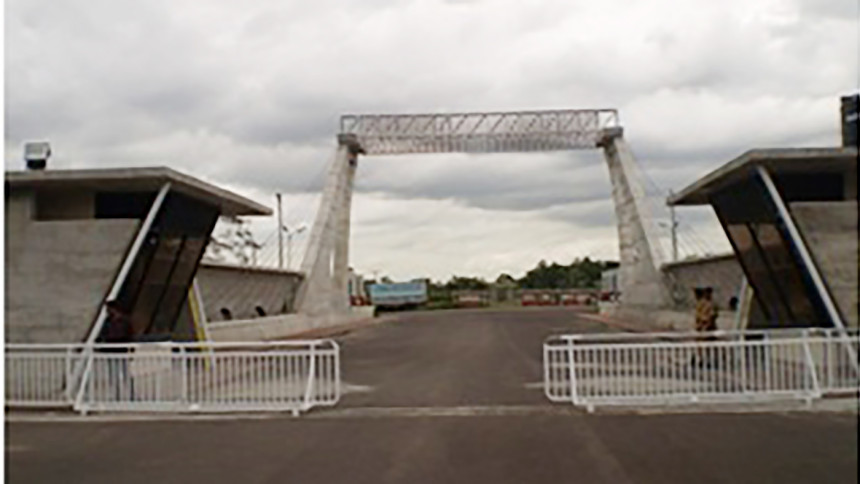Bangladesh Cards Ltd, a joint venture between Japanese, Australian and Bangladeshi investors, is going to invest $100 million in a local hi-tech park to manufacture high-end technology products, including smart cards and specialised security items, to cater to the growing domestic and international markets.
Seven acres of land were recently allotted for the project at the Bangabandhu Hi-Tech City in Kaliakair, Gazipur, where a five lakh square feet manufacturing hub will be set up. The company aims to construct the factory in line with US Green Building Council guidelines to gain green building certification.
“We will make all types of smart cards, such as bank cards, national identification cards and driving licences at the facility,” Abu Sarwar, managing director of Bangladesh Cards, told The Daily Star.
The firm, which is owned by a majority of Bangladeshi investors, also wants to be certified to make e-passports in order to supply to the governments of various countries.
The company plans to invest the money in the next five years.
“This investment will give Bangladesh self-sufficiency as an alternative to importing ICT-related products. After meeting local demand, we will also export Bangladeshi products to the international market,” Sarwar said.
“In the short term, we want to cut import dependency for such products by 50 per cent and in the long run, we want local manufacturing to completely cover imports,” he added.
The move comes at a time when Bangladesh has set a target to export $5 billion in IT services and digital devices by 2025, up from about $1.1 billion now.
In recent months, dozens of companies have been investing in the high-tech parks, 12 of which are now operational, to make and assemble semiconductors, digital devices, medical equipment, automated teller machines (ATMs), smartphones, televisions, networking devices, security surveillance and other electronics items thanks to generous incentive packages.
Companies that invest in the high-tech parks get lucrative tax breaks that include a 10-year tax holiday, duty-free import of capital machinery, tax waiver on foreign expats’ salaries, and duty-free utility bills while foreign investors can withdraw their investment anytime.
Other than the incentives, another formidable strength of the company is its connections around the world, according to Sarwar.
“Almost all of the board directors of the company are of Bangladesh origin and have been living abroad and working for top firms around the world while the chairman of the company is Japanese,” he said.
Most of the technology to be used at the unit will come from Japan and Australia.
“And since we have a big technology partner in Germany, international standards will be maintained while manufacturing these high-end technology products,” the managing director said.
The company has formed partnerships with some foreign companies that have over 10 factories around the world, some of which manufacture cards while others make passports and driving licences, and everything will be integrated with the Bangladesh factory, he added.
There are currently around 12,500 ATMs in Bangladesh but the number should be 35,000 if the country’s total population is taken into account.
“The price of an ATM machine depends on its functionality and we will offer prices that will be as much as 25 per cent less than that of imported ones,” Sarwar said.
More than 35 per cent tax is usually levied on the import of ATMs.
“So, we will get a competitive edge thanks to the incentive packages dedicated to local manufacturing,” he added.
Another big segment for the company would be making radio-frequency identification (RFID) clothing tags.
International buyers are increasingly asking local garment makers to include RFID tags with their products to ensure better tracking and and management.
“And we will be able to capture this big market since local manufacturers are mostly import-dependent for such tags,” Sarwar said.
Of the 660 employment opportunities to be created by the project, 400 people will be deployed as skilled technicians and about 99 per cent of the employed will be locals trained abroad.
“At least $1 billion worth of imports will be cut once we go at full throttle,” he added.
Bikarna Kumar Ghosh, managing director of the Bangladesh Hi-Tech Park Authority, said this is a big investment and will not only support the local market, but also diversify the country’s export basket.
So far, 175 companies have been allotted space in the country’s high-tech parks and 148 local startups have been allotted space/co-working space.
The Bangladesh Hi-Tech Park Authority has so far created skilled manpower of 36,000 individuals in the ICT sector through various training programmes considering the demand for manpower in the industry.
The Bangladesh Hi-Tech Park Authority has created direct employment for about 22,000 people in the ICT sector as well, Ghosh said.
And to ensure the fastest and best service to investors, the authority now provides a total of 148 services through its One-Stop Service portal.
“These services are easy to get, take short time and are of low cost. Of these, 43 services are being provided online,” he said, adding that there will be over 100 hi-tech parks in Bangladesh by 2030.

